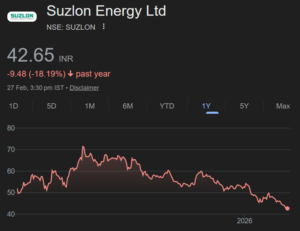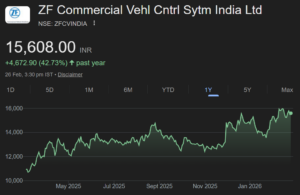
Old-school investment gurus have made a fortune out of brick n’ mortar companies. They are not familiar or comfortable with the business model followed by e-com companies.
The business model followed by e-com companies is to sell products at a steep discount so as to induce customers, who are not accustomed to shopping online, to do so. It is believed that once a critical mass of customers has been created, it will be easy for the e-com retailers to sell goods to these customers at market prices and rake in mega profits.
However, because the business model causes huge cash loss in the initial years, the gurus are worried about the sustainability of the business model.
Rakesh Jhunjhunwala, the Badshah of Dalal Street, has been in the forefront of the onslaught against e-com companies (see Boss, I Will Not Invest In E-Com Cos At These Valuations). The Badshah was not only contemptuous of the exorbitant valuations commanded by e-com companies but he also expressed grave concern that a business model which has no predictable cash flows may not be sustainable in the long term.
The other gurus have also echoed the same sentiments as that of the Badshah. Prem Watsa, the “Warren Buffett of Canada”, warned that internet and e-com stocks are being driven by speculation and they will “crash” soon (see I Am Confident Internet/ E-Com Stocks Will Crash: Prem Watsa). Samir Arora, whiz-kid with Helios Capital, expressed the same concern in the piece E-Com Investors Are Guaranteed To Lose Big Money.
Much of the criticism of the old-school gurus is based on the fact that Amazon Inc, the mother of all e-com companies, has rarely posted a profit in its fifteen years of existence.
However, Amazon’s blockbuster second quarter results have suddenly changed the equation. Its’ revenue surged 20% to $23.18B while the profits surged to $92 million. The EPS was Rs. $0.19 as compared to a loss of $0.14 expected by analysts. Though the profits are small in relation to Amazon’s valuations of $247 billion, it shows that the business model is capable of generating profits, which can become bumper, with a small tweak.
Amazon’s stock price surged 20% on Friday. On an YTD basis, the stock has delivered magnificent gains of 71%.
Amazon’s market capitalisation stands at nearly $270B. This exceeds Walmart’s (the largest brick n’ mortar retailer) market capitalisation of $247B.
To their credit, the analysts readily acknowledged that they had underestimated Amazon’s capability. “For some time, we have believed that Amazon margins would grow slower than bullish expectations and had been concerned with a deceleration in revenue. Clearly, we have been too pessimistic on the near-term leverage in model as margins are expanding much faster than we thought” Barclays said.
ET collated the research reports of twelve analysts. Each has an ‘overweight’, ‘outperform’ and ‘buy’ rating on Amazon’s stock.
Now, the million dollar question is whether the Indian e-com retailers like Flipkart, Snapdeal etc will be able to emulate Amazon’s feat? If Amazon can do it, why not its Indian counterparts? Undoubtedly, this will play a part in the hype surrounding the impending IPO of Infibeam.
At this stage, we must note that there are only two gurus who have been able to successfully bridge the gap between the brick n’ mortar world and the e-com world.
The first is Porinju Veliyath, who has taken to the e-com world like a duck takes to water. Within a short span of time, Porinju has snapped up large stakes in e-com companies like Palred Technologies, IZMO/ Logix Microsystems, Archies etc. Intrasoft Technologies, which runs 123stores.com, may be next on Porinju’s buy list.
The next is Prof. Sanjay Bakshi who has made a foray into the e-com World with his purchase of Vaibhav Global, the online retailer. The Prof is very ebullient about Vaibhav Global’s “impenetrable moat”, “low cost advantage formula”, “operating leverage”, “entry barrier” and “scalability”.
The Prof is also gung ho about Vaibhav Global’s “highly profitable, cash generating, extremely well financed, and dominant business”.
If Vaibhav Global does turn profitable, then one can expect the other old-school gurus to soften their stand and take a benign view of e-com companies.
Who knows, at some stage in the future, even the old-school gurus may be be tempted/ persuaded to invest in the e-com companies!






I think there is a slight error in the article. Vaibhav Global is very much profitable and that is the learned Prof (who I respect) has invested.
It has recorded profits in four of the last five years. It is now debt free.
I am also not sure if Amazon will continue earning handsome profits. We’ll need to consider those as real profits only after all the previous losses have been wiped out.
What say?
Unfortunately the author of this article hasn’t done due diligence in finding why amazon reported a profit and preferred to write this ‘confirmation biased’ article.
A lot of amazon’s profit has come from really good results in its AWS wing which has got nothing to do with amazon’s ecommerce.
If you are in camp of ecom then you should pay attention toward Olympia Industries Ltd , premium seller on Amazon India competing with Narayan Murthy’s Cloudtail . Olympia Industries Ltd had revenue of around 120 cr last year .
What Rakesh was referring was INdian cos like SNAPDEAL etc.
Jeff Bizos of AMAZON is a genius who is ahead of his times, and surely he is creating such a MOAT for the future that practically no company on earth would be able to compete with it.
Thats the reason he is sacrificing PROFITS for GROWTH for the moment. There is a method to his madness. One has to be patient with this company. Once it reaches an inflection point, then you will only see profits. It’s the FLYWHEEL EFFECT which will take place, make no mistake about this.
Just think about this: SNAPDEAL spent 35 crores rupees on sponsoring a crappy show like BIG BOSS ! This shows they didn’t know what do with the money being showered by the PE companies! Just think what Jeff Bizoz would have done with that 35 crores rupees. That’s the difference between SNAP DEAL and AMAZON.!!
None of the Gurus have ever run a business. The mindset of a businessman and investor are different. Also, these businesses are something which are defining new ways..so conventional model to judge them will be a failure.
Buffet did not invest in technology companies saying that he does not understand them, but that did not stop many entrepreneurs from creating huge wealth.
Regards,
Raj